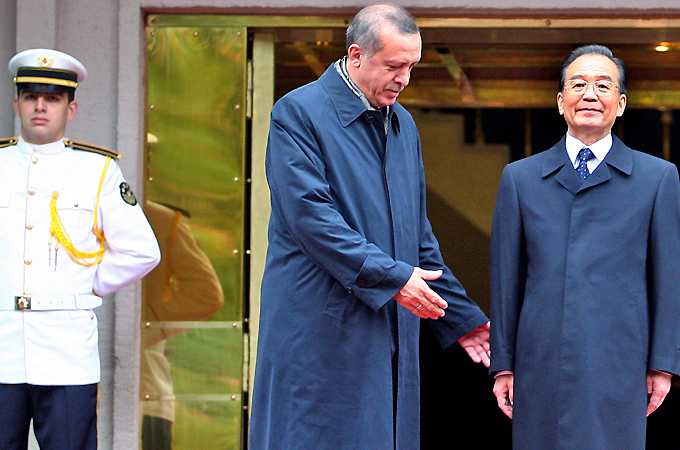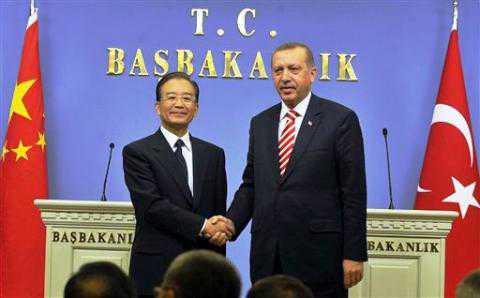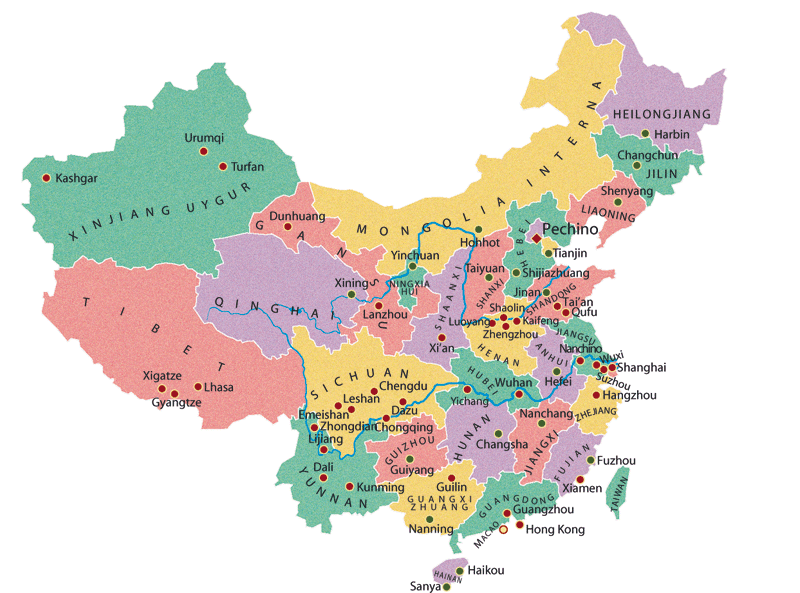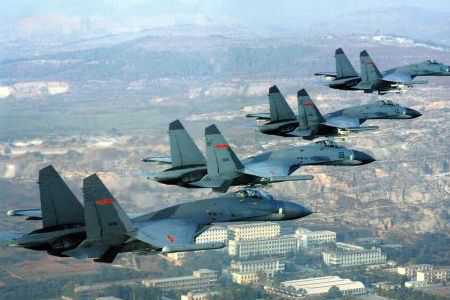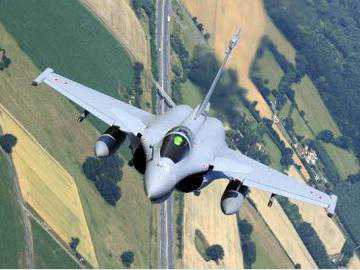Turkey Seeks Closer Economic and Strategic Ties with China
Publication: Eurasia Daily Monitor Volume: 7 Issue: 186
October 15, 2010
By: Saban Kardas
Chinese Prime Minister Wen Jiabo’s official visit to Turkey on October 7-8, marked a new phase in Turkish-Chinese relations. During the joint press briefing with Wen’s Turkish counterpart Recep Tayyip Erdogan, both leaders emphasized the importance they place on each other in their external relations and called their flourishing ties a “strategic partnership.” The parties signed eight agreements to develop further cooperation in various areas, including trade, transportation and combating terrorism (Anadolu Ajansi, October 9).
Erdogan preferred to highlight the agreement to switch from dollars to their own currencies in bilateral trade. Turkey also signed a similar agreement with Russia and Iran, its other major trading partners. Through such bilateral agreements, Turkey appears determined to underscore its willingness to pursue independent policies in the global economic and financial order, which has been structured around US primacy. As such, Ankara seeks to readjust to a post-American-led world order, as the existing global order is currently in flux. On many occasions, Turkish leaders have emphasized that the gravity of the global economy has been shifting towards Asia, and that Turkey, which had been traditionally integrated into the Western world, now needs to readjust its economic and political priorities.
It was therefore no surprise that Erdogan described the decision to use mutual currencies as a step to cement the strategic partnership between China, the economic giant which is likely to dominate the world economy in the years to come, and Turkey, an emerging economy which currently ranks 17th. China and Turkey have been the two major economies recovering rapidly from the global financial crisis, which may precipitate greater coordination between both powers in the context of the G-20 summit and other international platforms.
However, there remains a major trade imbalance in China’s favor, which Turkey must quickly address. While Turkey’s imports from China were around $12.7 billion, Turkey’s exports amounted to only $1.6 billion in 2009. Ankara’s strategy is to redress this imbalance through the promotion of Chinese investments in Turkey, increasing tourism from China, and gaining greater exposure for Turkish products in China. Through more intensive cultural exchanges within the next three years, Turkey hopes to accomplish the latter objectives (Today’s Zaman, October 9). However, given China’s track record in achieving a positive trade balance with its partners and its low production costs, it remains to be seen how far Turkey can penetrate Chinese markets.
Erdogan also referred to the prospects of joint projects in energy and nuclear power as yet another aspect of bilateral economic cooperation. Since Ankara signed an agreement with Moscow to construct the country’s first nuclear power plant, preparations have been underway for the construction of additional plants. While Turkey has been in talks with a South Korean company regarding the second plant (EDM, March 24), others, including Japanese companies, have recently approached Ankara on the same issue, raising expectations of growing competition in this sector. Given China’s recent drive to build numerous nuclear reactors, including some of the world’s most advanced, its experience in this field might make it a new entrant into the Turkish energy sector, though there is currently no concrete offer on the table. China has already won various large contracts to build major infrastructure projects, including modern railways in Turkey.
History also plays a role in these flourishing ties, as references to the idea of reviving the historic Silk Road abound. Earlier, Iran also expressed interest in a similar idea, in the context of the Economic Cooperation Organization (www.irna.com, September 24). The Turkish side has worked on various projects to improve the transportation infrastructure in order that goods could flow easily between China and Turkey as well as through Central Asia (www.trt.net.tr, October 9). Such projects, in Ankara’s view, will also serve as the best remedy to bring stability to volatile Central Asia.
However, historical factors also emerge as a source of friction in Sino-Turkish relations, as was demonstrated clearly during Wen’s visit. Following Turkish President Abdullah Gul’s historic visit to China in late June 2009, violent clashes in the Xinjiang Uighur Autonomous Region left many Turkic Muslim Uighurs dead in July 2009. Turkish leaders, which had come under pressure for ignoring the plight of Uighurs, moved to criticize Chinese policy in Xinjiang. Erdogan went as far as claiming that the killings amounted to “nearly genocide” (EDM, July 15, 2009). However, in the subsequent period, Sino-Turkish relations rapidly normalized, despite the efforts of the Uighur diaspora in Turkey to pressurize the government (EDM, August 19, 2009). Later, Turkey and China also started discussing cooperation in combating terrorism (Terrorism Monitor, October 1, 2009).
Since China has represented the Uighur resistance as subversive terrorist activities, possibly with ties to the global al-Qaeda network, such cooperation with Turkey has been deemed valuable. In this context, Wen emphasized during the joint press briefing that they discussed boosting bilateral cooperation in fighting terrorism and extremism. Such talks, ironically, took place while Uighur activists organized demonstrations outside to protest against Wen’s visit and Ankara’s policy towards China (Hurriyet, October 9).
Ankara’s position on Uighur demands, which might appear as backpedaling, mirrors Turkey’s earlier experience with the North Caucasus diaspora. In order to preserve the flourishing Turkish-Russian bilateral relationship, Ankara adopted a cooperative approach and restrained the activities of the Caucasian diaspora during the second Chechen war, a policy which continues to date (EDM, April 14). In the otherwise strong relationship with China, Uighur pleas for greater recognition are likely to remain a sore point. Yet, the Turkish government seems determined not to let the Xinjiang issue spoil growing economic and political ties with China.
An apparent indication of this determination came earlier this month, when a Turkish daily reported that in late September and early October, the Turkish and Chinese air forces held joint drills in Turkey’s Central Anatolian province of Konya (Taraf, October 2). Although Turkey refrained from using its more advanced F-16’s and flew only F-4’s upon US expression of concern over protecting sensitive technology, its decision to deepen military ties with China to such a level, the first such exercise China has conducted with a NATO member, reveals much about Turkey’s new strategic priorities.
https://jamestown.org/program/turkey-seeks-closer-economic-and-strategic-ties-with-china/


